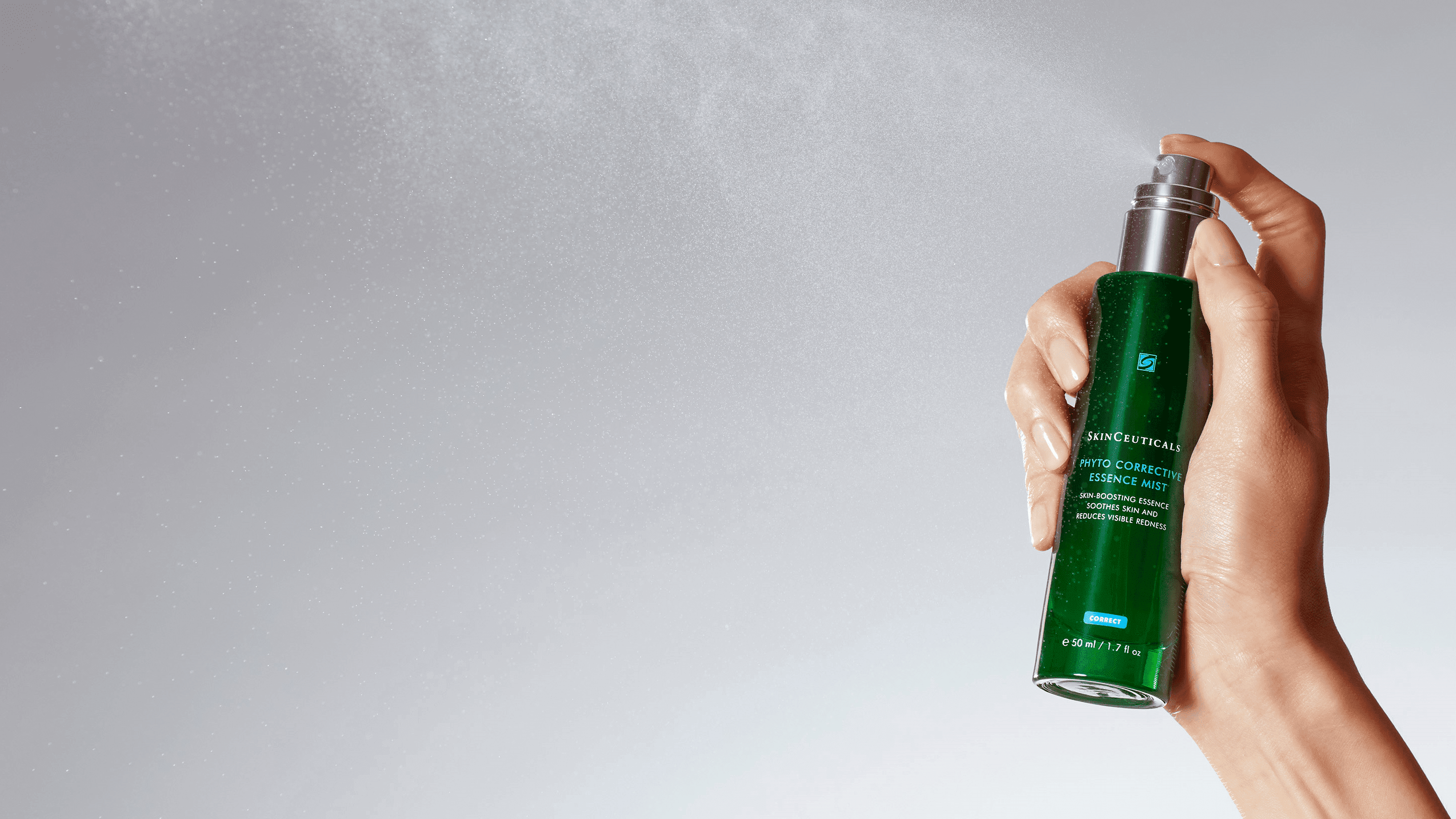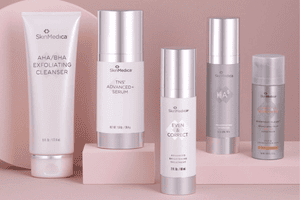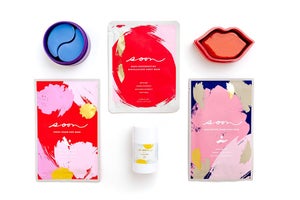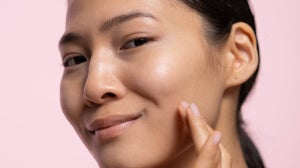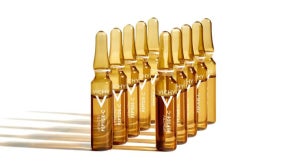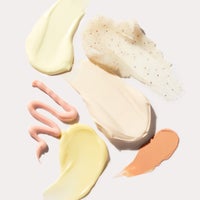
You know those dark, hard-to-get-rid-of spots on your skin that surface after too much time in the sun or a bad breakout? That’s hyperpigmentation, a common type of skin pigment that affects millions of people annually. Pigmentation can occur anywhere on the face and body and, more times than not, is related to an inflammatory trigger that sets off a cascade of actions sending the pigment-producing departments of the skin into a tizzy. The result? Dark spots, melasma patches and post-inflammatory hyperpigmentation can mar your skin despite your best efforts.
Even if you’ve tried to improve your complexion and only saw a slight improvement, the secret to really improving hyperpigmentation and garnering clearer, more even-toned skin lies in devising a proper skincare treatment protocol specific to your skin. Although the options for treating skin pigmentation are more accessible and varied than ever before, it still comes down to stopping the proliferation of melanin at the source.
Table of Contents:
- What is Skin Pigmentation, and What Causes It?
- What Are the Different Types of Skin Pigmentation?
- Treat Hyperpigmentation with an Effective Skincare Routine
- Advanced Treatments for Skin Pigmentation
- Hyperpigmentation Prevention
- The Bottom Line
What is Skin Pigmentation, and What Causes It?
Skin pigmentation is the color of the skin. Some skin tones naturally have more pigment than others, which is genetically predetermined, giving them a darker coloration. Regardless of your skin’s natural tone, all skin tones and types contain melanin, which gives the skin its color.
Deep within the skin are small pigment-making factories loaded with melanin (there are two types, eumelanin and pheomelanin). Specific cells, known as melanocytes, are responsible for creating melanin, and this production cycle gets thrown into overdrive, and melanin production revs up, causing discoloration or skin pigmentation. When a trigger sets the pigment cycle into production mode, the result is either dark or light spots on the skin or even patches. In some cases, white spots can ensue. Depending on the type of meaning that’s triggered dictates the color of pigment on the skin. Eumelanin creates a brown or black coloration on the skin, and pheomelanin leaves behind a red or yellow tone.
When the skin experiences pigmentation, it can manifest on the skin as:
- Brown spots
- Dark freckles and marks
- Discolored patches of skin
- Areas of unusual lightening of the skin
Skin pigmentation can be either local or diffuse, appearing as small spots and patches or larger areas of pigmentation.
Several different factors cause skin pigmentation, including:
- Inflammation: Any time there is trauma to the skin, which can include acne, burns, cuts, or blisters, the skin responds to it by turning on its inflammation factors which ‘turn on’ pigment-producing cells. The result? Dark spots are left behind, usually for some time, indicating that the injury has healed. Discoloration that results from pigmentation is known as post-inflammatory hyperpigmentation (PIH).
- Sun exposure: When the skin is exposed to the sun’s UV damage, it produces melanin production for self-defense. Yes, the increase in melanin is responsible for a golden tan, but it’s also what causes dark spots and sunspots to start to appear.
- Melasma: Known as the mask of pregnancy, melasma is a patchy grouping of light to dark brown pigment on the skin typically found on the forehead and cheeks. While increased hormones due to birth control or pregnancy are the driving force behind melasma, sun exposure can also worsen the condition.
- Certain medical conditions: Sometimes, excessive pigmentation in the skin is linked to certain medical diseases and conditions. For example, Addison’s disease, which is adrenal gland disorder, can cause increased melanin production and, therefore, more than normal amounts of pigmentation in the skin. Similarly, specific types of antibiotics, medications, nonsteroidal anti-inflammatory drugs (NSAIDs), and even chemotherapy medications can also up the potential for skin pigmentation.
- Genetics: In some skin pigmentation cases, genetics are to blame, and the skin is pre-programmed to produce more than average amounts of melanin, even if it is not exposed to one of the common triggers.
Any one, or a combination, of pigmentation-producing factors, can cause an overproduction of melanin and, eventually, uneven skin tone. Once the skin recognizes a trigger, it sends a message to turn on the hormones that control melanin production. Then, pigment production begins, and tiny packages of melanin are made, called melanosomes. These bundles of pigment then get dispersed throughout the different layers of skin, usually trying to make their way from the dermis to the superficial layer (when the pigment is lower in the skin, it’s harder to lighten), resulting in skin pigmentation. Since the skin isn’t equipped to evenly distribute the pigment in a uniform layer, small spots and patches of discoloration often result. The more the cycle transpires, the more pigmentation is evident on the skin and the darker it can become. Skin pigmentation usually doesn’t lighten on its own, which is where skin brightening and pigment-reducing skincare products come into play.
To effectively treat pigmentation in your skin, it’s essential to determine the cause of it in the first place. From there, you should devise a well-rounded treatment approach to lighten existing pigmentation and prevent future spots and discoloration from forming after that.
What Are the Different Types of Skin Pigmentation?
Pigmentation isn’t the same from one person to the next, and how discoloration manifests in the skin is usually due to the root cause. The most common types of skin pigmentation include:
- Sunspots: Anytime the sun creates an abundance of melanin, the skin displays signs of extra pigment (hyperpigmentation). The more sun exposure the skin receives over time, the harder it is for the skin to monitor and control melanin production. Once UV exposure reaches its maximum capacity, the skin produces dark spots and even patches on the face, chest, and hands, known as sunspots or solar lentigines. The same effect can occur from blue light exposure.
- Post-inflammatory hyperpigmentation (PIH): Inflammatory triggers that result in inflammation in the skin can leave behind stubborn dark spots. While PIH can affect all skin tones, it’s more common in darker skin with naturally higher pigment levels. PIH is common in acne and scars.
- Melasma: Melasma appears on the skin as a light to dark brown or black pigment patch and usually worsens with sun exposure.
- Hypopigmentation: Hypopigmentation occurs due to low levels of melanin. Excess melanin is produced as a response to a trigger, but when the skin is deficient in pigment, the area can appear lighter in color. Hypopigmentation can result from skin injury, inflammation, and inflammatory conditions like eczema, psoriasis, and albinism.
- Depigmentation: When the skin loses its ability to create melanin altogether, depigmentation occurs. Rather than the skin reacting to a trigger and creating pigment that darkens the skin, the area typically turns white. Some conditions, like vitiligo, are forms of depigmentation.
Of all the different types of skin pigmentation, hyperpigmentation is the most common. That’s because so many factors can instigate hyperpigmentation and cause skin darkening. In some cases, the effects of hyperpigmentation are only slightly darker than the skin’s natural tone, while in others, it is a more noticeable difference. Also, when hyperpigmentation persists, only certain skin areas are usually affected. However, treating hyperpigmentation is important, and the quicker you can get ahead of it, the better since pigmentation becomes more stubborn and more difficult to treat the longer it is visible on the skin.
Treat Hyperpigmentation with an Effective Skincare Routine
The key to lightening hyperpigmentation is to instill a proper skincare routine that tackles discoloration at the source and prevents new pigment from forming. Naturally, since the causes of hyperpigmentation vary from one person to the next, the solutions for improving it will too. Some discoloration can start to fade with the integration of just a few ingredients, while others may require a trip to the dermatologist’s office, too. Word to the wise: be patient when treating hyperpigmentation since it takes time and patience for the pigment to begin to fade.
Gentle Cleansing and Exfoliation
Step number one in an effective skincare routine that treats hyperpigmentation is cleansing. A good, mild cleanser always is the starting point for prepping the skin to receive active ingredients and treatment products.
With clean skin in tow, it’s time to exfoliate it to help lift the existing pigment from the skin’s surface and fade it while promoting cellular turnover. Since pigment gets trapped in the skin cells, exfoliating them off the surface is a tried-and-true way of brightening the skin. Make sure to use a chemical exfoliator with alpha hydroxy acids (AHAs) like glycolic, lactic, citric, and malic acids or beta hydroxy acids (BHAs), such as salicylic acid, to fade the discoloration and remove the outermost layer of skin. Removing old, dead skin cells packed with pigment will allow room for fresh, new skin cells to emerge and give the skin a more even tone and smoothness. Make sure not to over-exfoliate the skin or use aggressive exfoliating agents, which can promote additional hyperpigmentation and even skin damage.
Targeted Treatment Products
When it comes to treating hyperpigmentation, several different topical treatment options exist. Most topical solutions work by interrupting the pigment-producing cycle and inhibiting an enzyme, tyrosinase, involved in melanin production. But don’t expect any skin-pigment lightening or brightening treatment to work immediately. Instead, you’ll need to be consistent and stick to a hyperpigmentation treatment for at least three months to see a noticeable improvement.
- Retinol: Vitamin A-derived retinol is a tried-and-true ingredient for reducing hyperpigmentation in all skin tones. With various percentages available so you can dial up or down the potency, retinol helps to increase cell turnover and speed up the rate at which the skin naturally sheds off dead skin cells, leaving the skin’s tone more uniform. Retinol, and its stronger prescription-strength cousin, retinoids, are said to help stabilize melanin production too. If you are new to retinol, start slowly and apply a lower concentration only at night, eventually working your way up over time. This will also help mitigate redness, dryness and peeling.
- Niacinamide: A form of vitamin B3, niacinamide is an antioxidant that works wonders for skin pigmentation. It helps prevent pigmentation from forming by reducing pigment transfer amongst skin cells. By reducing melanin production, niacinamide can help fade sunspots and dark spots and improve melasma.
- Vitamin C: Consider using a vitamin C-packed cream or serum for brighter, more glowy skin that’s evenly toned. Vitamin C also helps decrease skin pigmentation by limiting melanin production. When combined with vitamin E, vitamin C displays even more substantial antioxidant benefits to help protect the skin against UV damage.
- Alpha hydroxy acids (AHAs): AHAs are a group of skin-safe acids that disrupt the bond that holds dead skin cells onto the skin's surface. Popular AHAs for brightening skin pigmentation include mandelic, glycolic, lactic, and citric acids, all of which can help lift and away pigment. Using AHAs as an exfoliating agent also allows the skin to receive other active ingredients better.
- Kojic acid: Kojic acid is a tyrosinase inhibitor that helps control melanin production so that too much isn't made.
- Hydroquinone: Of all the targeted hyperpigmentation treatments available, the most controversial one is hydroquinone. While it is effective at blocking pigment production, it does so in a rather powerful way that has plenty of people backing off from using it today compared to in the past. Hydroquinone has some potential side effects, like graying of the skin, irritations, contact dermatitis, and organ toxicity. Due to the possible side effects, hydroquinone is now only available through a prescription, yet plenty of effective hydroquinone-free options exist for tackling pigmentation.
- Azelaic acid: To effectively treat skin pigmentation, you'll need to use a higher concertation of azelaic acid. Like other hyperpigmentation treatments, azelaic acid helps brighten dark spots by slowing melanin production and blocking key pathways. Plus, azelaic acid works to inhibit free radical damage, too.
Sun Protection
Daily use of sunscreen is the cornerstone of any well-rounded skincare routine, but when it comes to preventing and treating hyperpigmentation, implicit use of sunscreen can't be glossed over. Since sun protection is a critical step in avoiding hyperpigmentation that arises via UV triggers, you should never skimp on application, always reapply and never go a day without wearing sunscreen regardless of the weather or time of year—yes, your skin is even being exposed to the sun on cloudy days and in the dead of winter.
Wearing sunscreen with an SPF of at least 30 is recommended to help decrease the skin's reactive nature to sun exposure. Plus, the better protected your skin is, the less likely for existing discoloration to darken.
Advanced Treatments for Skin Pigmentation
Microneedling and Dermarolling
If your skin needs a little more help than topical treatments, consider microneedling to stimulate collagen production and improve the appearance of unwanted hyperpigmentation. Whether performed professionally in a practitioner's office or done at home with a small dermaroller, the idea behind microneedling and dermarolling (they are essentially the same but rely on different depth needles) is to create safe, controlled microscopic injuries in the skin that prompt the skin to heal healthily and reduce discoloration in the process.
Using a dermaroller to microneedle the skin can help to improve deeper pigmentation that lives within the skin. As the skin creates new collagen and reorganizes damaged existing collagen bundles, it also helps normalize melanin production for more evenly toned skin. Keep in mind that although the benefits of microneedling and dermarolling can be pretty dramatic, it takes several sessions to see a lightening of the discoloration. However, it's essential to seek professional guidance and always use a dermarolling appropriately and not to aggressively microneedle the skin, use the tool too frequently or layer on certain skincare ingredients directly after, which can hinder the results.
Related Article: Skin Care’s Most Powerful Protein: Discover the Importance and Youth-Boosting Benefits of Collagen
Chemical Peels
Chemical peels rely on acids to gently exfoliate the skin and speed up the skin's natural renewal rate. By treating hyperpigmented skin with a chemical peel, the dead skin cells will slough away and soon be replaced by fresh, evenly toned skin cells, leaving the skin looking brighter and more consistent. However, not every chemical peel suits every skin type, so understanding your skin and exfoliating acids is necessary. If the wrong exfoliating acid or strength is used, the existing pigment can worsen, and new pigment can surface.
Different chemical peels can be used to improve hyperpigmentation, and each relies on a unique blend of exfoliating acids. The stronger the peel, the deeper it works within the skin to eradicate stubborn and long-term discoloration. Often, chemical peels are used with topical skincare ingredients and products to erase discoloration like age spots, sun damage, acne scars, and melasma.
Chemical peels can be done both at home and at the spa. AHA peels are common for at-home use and usually incorporate glycolic, lactic or mandelic acid, which helps to improve pigmentation in the skin by exfoliating the top layer of skin just like professional versions (at-home peels are of lower concentrations). It's normal for a chemical peel to leave the skin a little red or pink, slightly irritated, and even dry or itchy afterward. To make the most of an AHA chemical peel, use sunscreen daily to prevent sun sensitivity and apply a peel once per month for at least four months to see the best results.
Hyperpigmentation Prevention
We get it, dealing with stubborn and annoying hyperpigmentation can take its toll on your skin. But you can follow plenty of steps to be proactive and limit the risk of skin pigmentation from forming, especially if you treat discoloration on the surface in the meantime. You don't want all that work to be for nothing, so here's what you must do to prevent pigment from forming.
- Wear sunscreen every single day: The sun is an obvious offender of hyperpigmentation, and if your skin isn't adequately protected, then all other efforts are null and void. It's vital to wear sunscreen on areas where pigment already exists to prevent spots from becoming darker.
- Avoid excessive sun exposure: Wearing sunscreen is rule number one, but you can take it further and protect your skin with UPF clothing, a wide-brimmed hat and a pair of protective sunglasses.
- Take care of any skin injury the minute you notice it: When dealing with wounds, it's better to treat them first rather than wait until they've been on the skin for some time. Any time a pimple, bug bite or scab is popped, scratched or picked, the skin is at risk of becoming inflamed and infected, and that's when hyperpigmentation transpires.
- Eat clean: Certain foods, like leafy green vegetables, are am-paced with carotenoids, which help decrease oxidative stress in the skin and fight discoloration.
- Get enough sleep: While you sleep, the skin works hard to repair the damage it incurs during the day. It's also when the skin can use skincare ingredients to make a difference in its tone. So, if you skimp on sleep, it's likely to show on your skin.
The Bottom Line
Skin pigmentation affects all skin tones and types at some point or another. While preventing hyperpigmentation from forming takes dedication and a diligent skincare routine, it's not impossible, and you can do it. The key to keeping your skin tone clear and even is to know what triggers your skin to produce excess melanin and avoid interacting with those triggers. Talking to your skincare specialist or dermatologist about your pigment-related concerns and the best treatment options to fit your lifestyle is always a good starting point.
Shop skincare products that help treat skin pigmentation at SkinStore.

Related Articles

